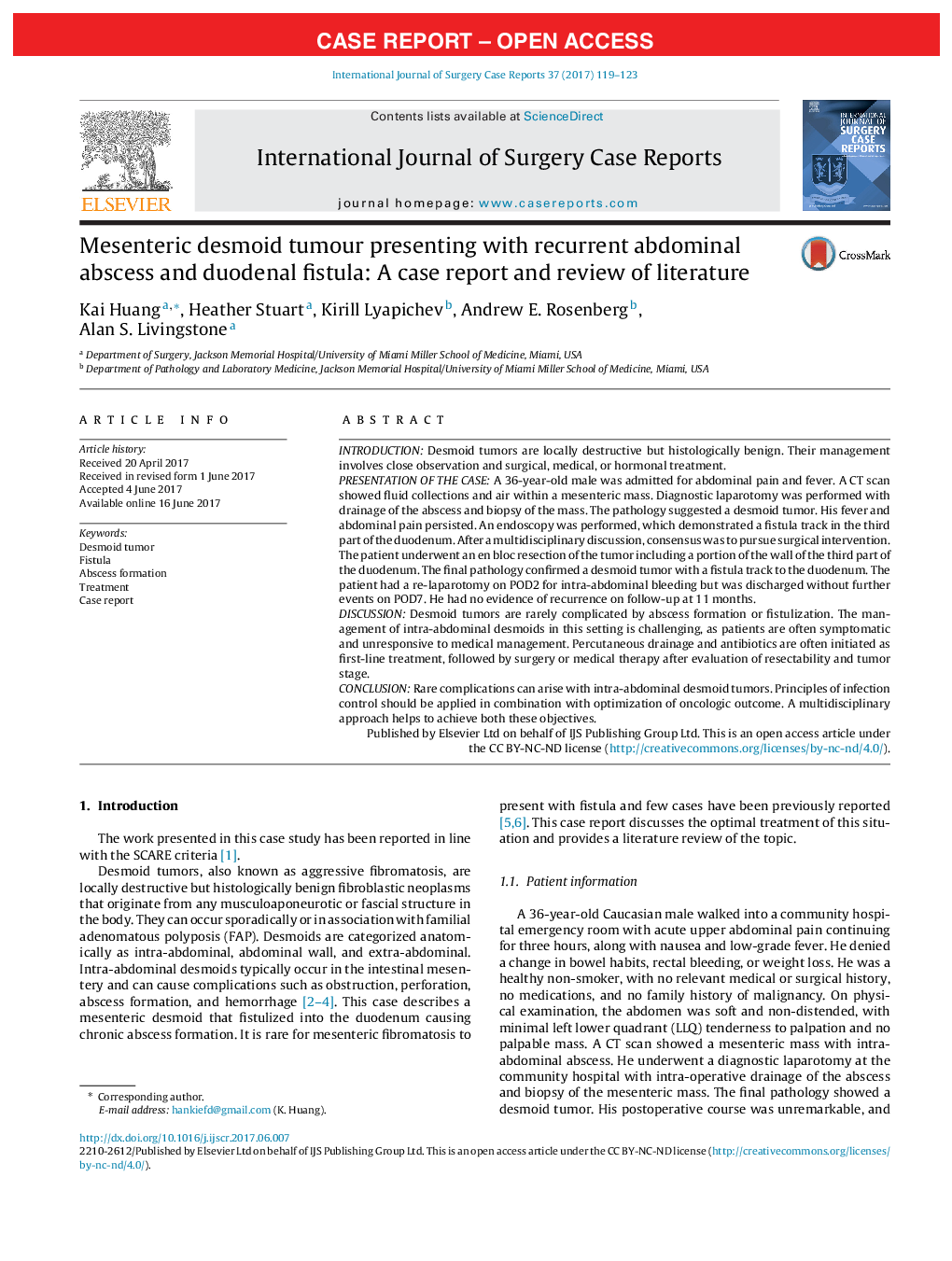| Article ID | Journal | Published Year | Pages | File Type |
|---|---|---|---|---|
| 5732686 | International Journal of Surgery Case Reports | 2017 | 5 Pages |
â¢Mesenteric desmoid is a rare benign tumor, usually asymptomatic, but can grow aggressively and cause complications.â¢Recurrent intralesional abscess formation even after drainage and medical therapy should lead to the assumption of fistulization to the adjacent bowel.â¢Treatment should be guided by a multidisciplinary team, and operation intervention should be performed by surgeons familiar with desmoid tumor biology.
IntroductionDesmoid tumors are locally destructive but histologically benign. Their management involves close observation and surgical, medical, or hormonal treatment.Presentation of the caseA 36-year-old male was admitted for abdominal pain and fever. A CT scan showed fluid collections and air within a mesenteric mass. Diagnostic laparotomy was performed with drainage of the abscess and biopsy of the mass. The pathology suggested a desmoid tumor. His fever and abdominal pain persisted. An endoscopy was performed, which demonstrated a fistula track in the third part of the duodenum. After a multidisciplinary discussion, consensus was to pursue surgical intervention. The patient underwent an en bloc resection of the tumor including a portion of the wall of the third part of the duodenum. The final pathology confirmed a desmoid tumor with a fistula track to the duodenum. The patient had a re-laparotomy on POD2 for intra-abdominal bleeding but was discharged without further events on POD7. He had no evidence of recurrence on follow-up at 11 months.DiscussionDesmoid tumors are rarely complicated by abscess formation or fistulization. The management of intra-abdominal desmoids in this setting is challenging, as patients are often symptomatic and unresponsive to medical management. Percutaneous drainage and antibiotics are often initiated as first-line treatment, followed by surgery or medical therapy after evaluation of resectability and tumor stage.ConclusionRare complications can arise with intra-abdominal desmoid tumors. Principles of infection control should be applied in combination with optimization of oncologic outcome. A multidisciplinary approach helps to achieve both these objectives.
